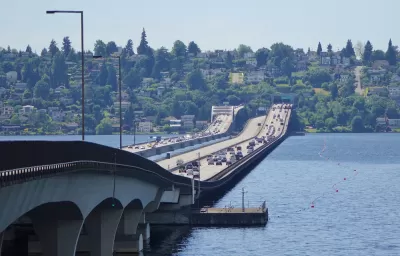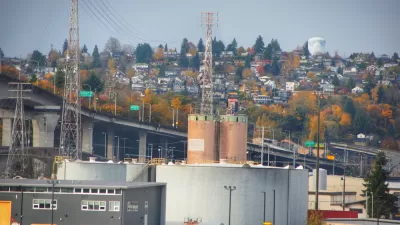After underestimating costs by hundreds of millions, Seattle is forced to cut back on proposed seismic improvements for the city's bridges.

The West Coast, nervously awaiting the catastrophic earthquake dubbed the "Big One," has spent years investing in improved earthquake safety and retrofitting infrastructure to withstand seismic destruction. Seattle promised to improve 16 of its bridges with modern earthquake safety mechanisms, but, after realizing it underestimated costs by hundreds of millions of dollars, the city is scaling back the work to only 11 bridges.
After reevaluating proposed costs for the bridge projects, the city realized it had vastly underestimated project costs and had received less than a tenth of the $37 million in federal grants and outside funding that they hoped would go toward seismic retrofitting. The expenses for the projected bridge work grew exponentially as engineers began analyzing the bridge foundations and surrounding soils. Improvements to the First Avenue South bridge, for example, jumped from $4 million to over $250 million, creating a huge gap in funding.
To move forward, the Seattle Department of Transportation plans to remove the most expensive bridges from its immediate plan and execute the work on others. The agency is drafting a new plan to address all of the city's bridges, slated to be ready by 2023.
FULL STORY: Seattle scales back earthquake work on city bridges as costs soar

Alabama: Trump Terminates Settlements for Black Communities Harmed By Raw Sewage
Trump deemed the landmark civil rights agreement “illegal DEI and environmental justice policy.”

Study: Maui’s Plan to Convert Vacation Rentals to Long-Term Housing Could Cause Nearly $1 Billion Economic Loss
The plan would reduce visitor accommodation by 25% resulting in 1,900 jobs lost.

Planetizen Federal Action Tracker
A weekly monitor of how Trump’s orders and actions are impacting planners and planning in America.

Waymo Gets Permission to Map SF’s Market Street
If allowed to operate on the traffic-restricted street, Waymo’s autonomous taxis would have a leg up over ride-hailing competitors — and counter the city’s efforts to grow bike and pedestrian on the thoroughfare.

Parklet Symposium Highlights the Success of Shared Spaces
Parklets got a boost during the Covid-19 pandemic, when the concept was translated to outdoor dining programs that offered restaurants a lifeline during the shutdown.

Federal Homelessness Agency Places Entire Staff on Leave
The U.S. Interagency Council on Homelessness is the only federal agency dedicated to preventing and ending homelessness.
Urban Design for Planners 1: Software Tools
This six-course series explores essential urban design concepts using open source software and equips planners with the tools they need to participate fully in the urban design process.
Planning for Universal Design
Learn the tools for implementing Universal Design in planning regulations.
Caltrans
Smith Gee Studio
Institute for Housing and Urban Development Studies (IHS)
City of Grandview
Harvard GSD Executive Education
Toledo-Lucas County Plan Commissions
Salt Lake City
NYU Wagner Graduate School of Public Service




























